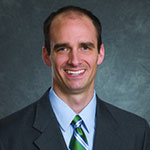WASHINGTON—Long-standing NPR radio personality Diane Rehm invited Aaron Hobbs, president of RISE (Responsible Industry for a Sound Environment), to join a panel discussion on pesticides on her Feb. 3 show.
Hobbs was joined by Les Glasgow, herbicide technical product lead for Syngenta; Erik Olson, director of health programs for the Natural Resource Defense Council (NRDC); and Andy Dyer, professor of biology at the University of South Carolina and author of “Chasing the Red Queen: The Evolutionary Race Between Agricultural Pests and Poisons.”
Rehm opened the show by discussing the challenges of weed resistance management and whether there is a need for new solutions.
Each panelist shared their distinct perspective, but Hobbs was able to bring into focus one commonality in the various views: the support for an integrated approach.
Hobbs pointed out that pesticides can be important tools and solutions to a problem. He noted that they should be used in combination with all available pest control tools to solve specific homeowner or farmer pest problems.
Hobbs also emphasized the importance of education, proper use and continued evolution of pesticide technology.
“If a resistance becomes an issue, and we’re looking at bringing a new solution to the table, they are not broad solutions, they are targeted,” Hobbs said on the show. “The innovation cycle brings a product to market that is more targeted to be more specific to the pest problem we’re trying to solve, as well as softer and friendlier to those beneficials in the field.”
Glasgow supported Hobbs’ emphasis on education, saying, “Education and training programs are crucial. We do have the tools, and we keep developing the tools, and it’s really about educating those making the decisions about how these products are used.”
Olson shared concerns about the impact of glyphosate use on milkweed and the monarch butterfly habitat, and Rehm directly asked Hobbs for his response. He referred to the important role pesticides play in invasive species management.
“There are invasive plant species that come in and compete with milkweed, making it difficult to grow, thrive and provide that habitat,” he said. “We are invested as an organization today in efforts to create more habitat for pollinators, particularly along rights-of way . . . For monarchs in particular, we are partnering with groups today where these tools, these herbicide tools, are one of the first ways to create that sustainable long-term habitat of the monarch butterfly.”
Listen to the complete show on The Diane Rehm Show website.

Leave A Comment